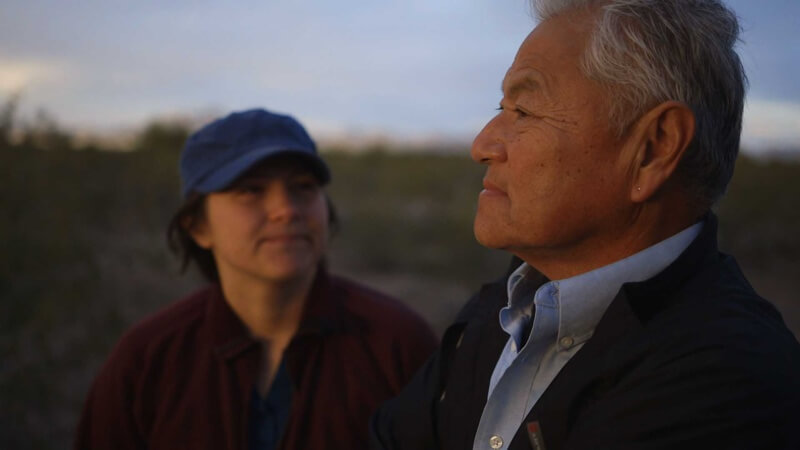
NOTE: “Changing Season” will be screened during the Colorado Dragon Film Festival on Sunday, May 22 at 12 noon. Click here for full information about the festival.
You’d think after a lifetime of growing and harvesting peaches, you’d get sick of eating them. But the Masumoto family still loves peaches and serves them up every way imaginable. David “Mas” Masumoto, 62, the farmer who has nurtured his parents’ peach groves, says “Actually no. I love peaches, almost literally in my blood.”
Nikiko Masumoto, his daughter, adds, “We have 10 varieties and each has a window of ripeness for two weeks. So it’s like getting to see your best friends for two weeks out of the year.”
The father-and-daughter interaction is central to the delightful dynamics of “Changing Season: On the Masumoto Family Farm,” a documentary by director Jim Choi. The film follows the two, as well as the farm’s matriarch, Marcy and Nikiko’s brother Korio, through a transitional year not only in the farm but in the family’s life.
The Masumoto Family Farm, which produces nectarines and raisins in addition to peaches, was purchased and first tilled by Mas’ father, Takashi “Joe” Masumoto, in 1948. The family had returned to California’s Central Valley after spending World War II in a concentration camp in Arizona along with thousands of other Japanese American families.
Mas wasn’t planning on following in his father’s footsteps. He attended the University of California at Berkeley in the early 1970s, thinking he’d escaped the sweat and labor. “I studied something that I thought would never bring me back to the farm: Sociology, he says. “But it got me to study how a plant grows and everything around the peach” – the whole community of people and processes that produce the fruit.
He ended up embracing the sociology of farming as part of the ecosystem that connected humans to the Earth. And maybe Cal helped lead Mas to be an early adopter of organic farming.
“When I was growing up it was somewhat conventional. At the time fertilizers and pesticides were expensive. When we were transitioning to organics, I relied on my father’s experience of farming. It was much simpler.”
Continue reading











